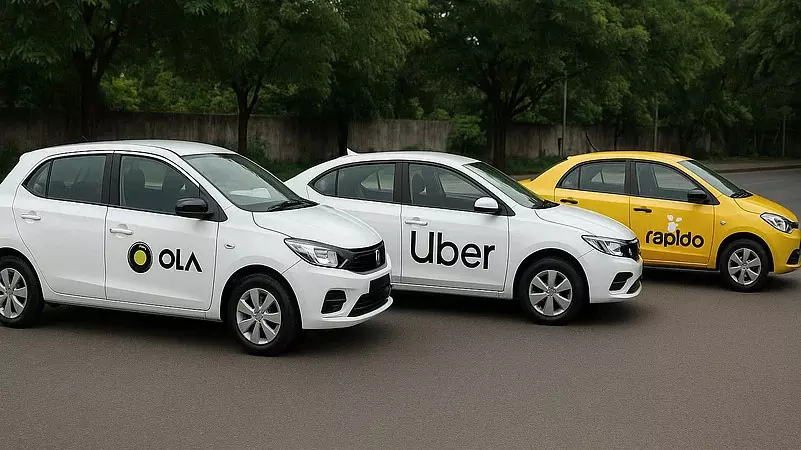App-Based Cab Strike in Mumbai Winds Down as Drivers Urged to Resume Work

The ongoing strike by app-based cab drivers in Mumbai and across several cities in Maharashtra came to a halt on Friday, as one of the largest unions involved — the Indian Federation of App-Based Transport Workers (IFAT) — called on drivers to return to work.
Although some drivers and union members wanted to continue the protest, most were concerned about their livelihoods and chose to pause the strike, giving the state government time to respond to their demands.
Officials from the state transport department met with union leaders on Friday, asking them to withdraw the protest. "We assured the driver unions that the government is working towards implementing a policy for app-based cabs soon," said Bharat Kalaskar, Additional Transport Commissioner. He also said that action was being taken against illegally operating bike taxis.
The strike, which began on July 14, was initially meant to last just one day but was later extended indefinitely. Drivers are demanding the prompt implementation of a long-pending aggregator cab policy, fare parity with Mumbai’s kaali-peeli taxis, a ban on app-based bikes and autos, and the withdrawal of a newly launched toll-free complaint number.
Another major concern is the financial stress faced by many drivers, especially after the alleged suicide of an app-based cab driver in Nallasopara last week. The strike led to hundreds of cabs going off the roads, resulting in longer wait times — up to 8-12 minutes — and fare hikes for commuters.
On Friday, union representatives gathered at Azad Maidan and Terminal 1 of Chhatrapati Shivaji Maharaj International Airport (CSMIA) to discuss the way forward. One of the key demands is fare parity. Anand Kute, organising secretary of the Maharashtra Rajya Rashtriya Kamgar Sangh, pointed out that while kaali-peeli taxis have fixed base fares and distance-based rates, aggregator cabs do not follow a standard structure. “App-based drivers make just ₹8-12 per kilometre. After paying 20-30% to the platform and taxes to the government, there's hardly anything left,” he said.
Drivers also reported incidents of harassment in areas like Vasai-Virar, Kalyan, Thane, and Navi Mumbai, where those continuing to work were attacked, had their vehicles damaged, and their phones and money taken. Meanwhile, aggregator companies like Ola and Uber were allegedly threatening to blacklist those who remained on strike.
“Given the circumstances, we’ve asked drivers to return to work. Their families are suffering,” said IFAT president Prashant Sawardekar. He added that the state government had requested 15 days from July 14 to address the drivers’ concerns. “We’ll wait until the deadline before deciding on our next move. If there’s no resolution, we’ll restart our protest.”
Another union leader said they’re also reaching out to autorickshaw and taxi driver unions, and have begun discussions with fleet operators who manage 70% of the aggregator cabs in Mumbai to join in future protests if needed.
**Toll-Free Complaint Number Launched**
On Thursday, Transport Minister Pratap Sarnaik launched a new toll-free helpline — 1800 220 110 — for commuters in the Mumbai Metropolitan Region to report issues with passenger vehicles. Complaints about fare refusal, rude behavior, overcharging, and other violations will be directed to regional transport offices, where action will be taken after a hearing.
